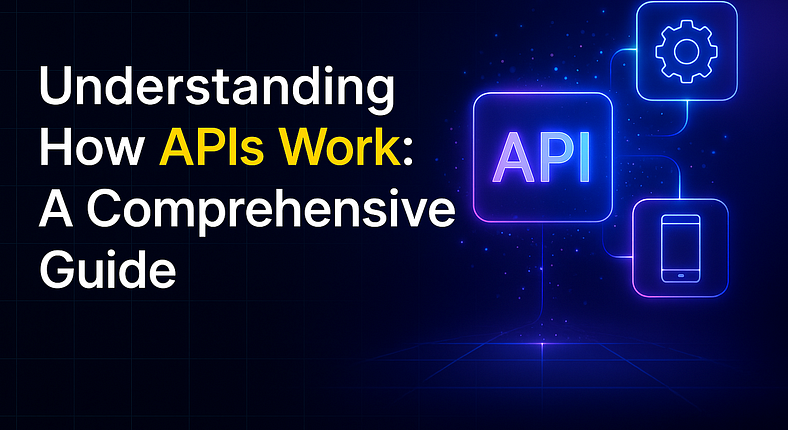Unlocking APIs: How I Finally Understood Them (and Why It Changed Everything for My AI Workflows)

When I first started building AI agents, I felt stuck. I could drag in nodes, connect things together, and even get some simple workflows running. But whenever I bumped into the word API, I froze.
Everyone kept saying, “Oh, just call the API.”
But I didn’t know what that meant. I wasn’t a programmer. I didn’t write code. And the moment someone mentioned “HTTP requests” or “endpoints,” I tuned out.
That all changed the day I finally understood APIs — and it completely transformed how I build automations.
The Waiter Analogy That Finally Clicked
The lightbulb moment came when I realized APIs are just like waiters at a restaurant.
You don’t walk into the kitchen and shout orders at the chef. You ask the waiter, and they handle the back-and-forth.
That’s exactly how APIs work. Instead of us (our workflow or AI agent) trying to talk directly to Gmail, HubSpot, or some database, we let the API be the “waiter” that carries requests and responses back and forth.
Making It Practical in N8N
Theory is nice, but it really clicked when I tried this inside n8n.
Here’s the flow I built step by step:
Start with a simple request — I pointed an HTTP Request node at a website (quotes.toscrape.com). What came back? A messy chunk of HTML. Useful, but not human-friendly.
Bring in Firecrawl — This open-source tool let me not just scrape but extract structured data from websites. Instead of ugly HTML, I could say:
And Firecrawl returned clean JSON data with text and author fields.
3. Make it scale — By adding a wildcard (*) after the domain, Firecrawl automatically crawled the whole site, not just one page. Suddenly, I wasn’t limited to 10 quotes — I got 79+.
4. Handle waiting — Since extraction takes time, I had to learn about polling. My workflow kept checking until the data was ready, then continued. That’s when I realized APIs aren’t always instant; sometimes you have to wait politely at the table until your “meal” is cooked.
Why This Changed Everything
Before I understood APIs, I was stuck inside n8n’s default nodes. I could only do what was pre-built.
After I understood APIs, I unlocked limitless possibilities:
The best part? You don’t need to be a programmer. Once you get comfortable reading API docs, copying a curl command, and plugging it into n8n, you can connect to anything.
The Story Comes Full Circle
When I started, APIs felt like black magic. Now, I see them as the most important tool in my AI workflow toolkit.
It’s not about technical jargon or memorizing protocols. It’s about understanding that APIs are the waiters of the digital world.
They take your order, deliver it to the kitchen, and bring back exactly what you asked for.
And once you master that? The menu is infinite.
✦ If you’re building AI agents or complex automations, don’t skip this. Learn APIs. They’re simpler than you think — and once you do, your workflows will never be the same.